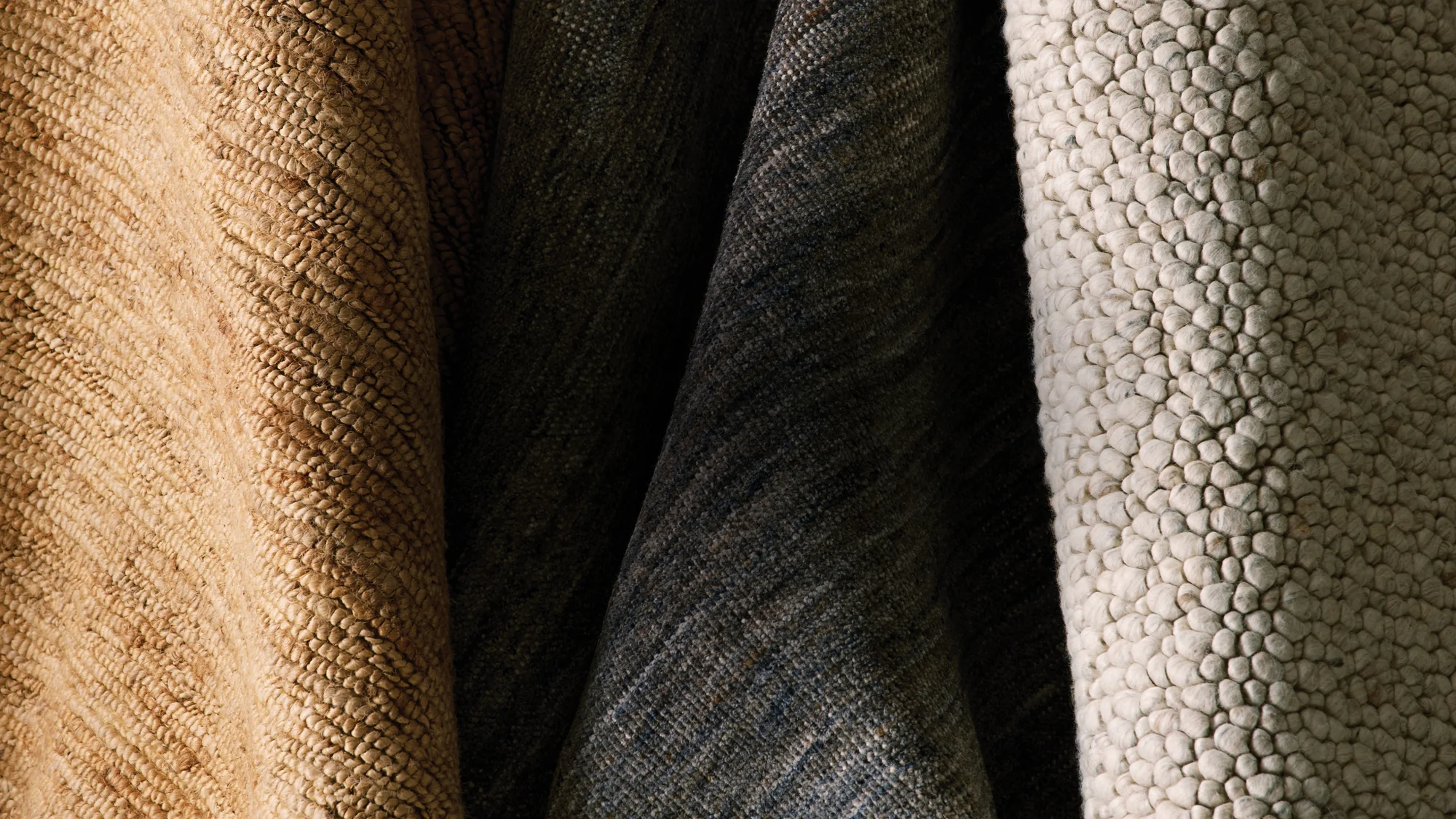
THE RUG GUIDE
Expert tips on choosing and styling the right rug for any space in your home.
Arhaus’ Rug Collection is handcrafted by some of the world’s most skilled artisans and weavers—ones we’ve been fortunate enough to collaborate with for more than 20 years. When so much love, time, and attention to detail goes into the creation of each rug, you’ll want to ensure that the stunningly crafted work of art you choose complements your space—and is stylishly displayed.
To help you achieve both, here are some helpful rug-buying and placement tips from our Design Team.
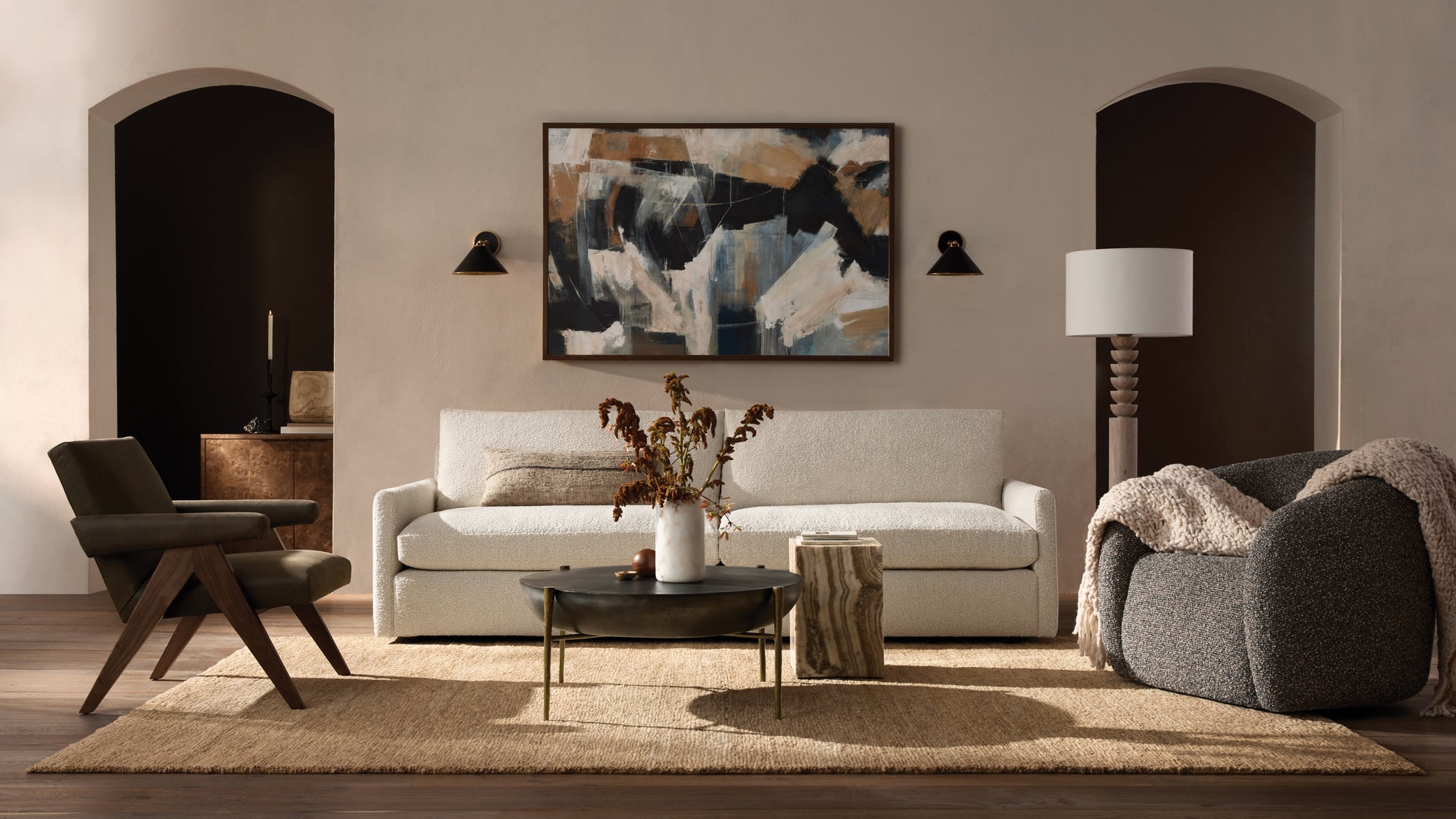
Go By The Numbers
Measure the room where the rug will be placed. This will make it easier to select a rug that allows for a reasonable amount of “gap” space between it and the walls. The maximum gap space for larger rooms should be around 24 inches on each side. For compact spaces, the gap should be at least eight inches on all sides.
LIVING ROOMS
Not only do rugs bring visual interest to living spaces, they can also anchor your room’s furniture—especially your seating area.

Front Legs on the Rug
This configuration works best when you have the back of your sofa or large piece of furniture against a wall. Arrange larger pieces of furniture so that the front legs of each item are on the rug, making sure the rug extends at least six inches beyond each piece’s front legs.

All Furniture on the Rug
This layout is ideal for open spaces and cozy seating areas, requiring a rug that is large enough to accommodate all of your furniture. Ideally, the rug you choose should extend at least six inches from each piece of furniture on all sides.

TAKE IT OUTSIDE
Rugs bring so much more to outdoor entertaining spaces. Not only do they add charm, but they can also designate gathering areas. When it comes to placement, you can apply the same living and dining room configurations to achieve the look you desire.
BEDROOMS
Rugs can add help to elevate the cozy comfort in any bedroom.

BED AND NIGHTSTANDS ON THE RUG
A general rule of thumb is that your feet should land on your rug when you’re getting out of bed in the morning, with plenty of room on all sides. This can be accomplished by centering your bed and nightstands in the middle of the rug.

Bed Only on the Rug
You can also place the headboard end of your bed slightly off of the rug, with the rest of your bed on it. If you prefer this layout method, use an 8'x10' rug for a queen-size bed and a 9'x12' rug for a king.
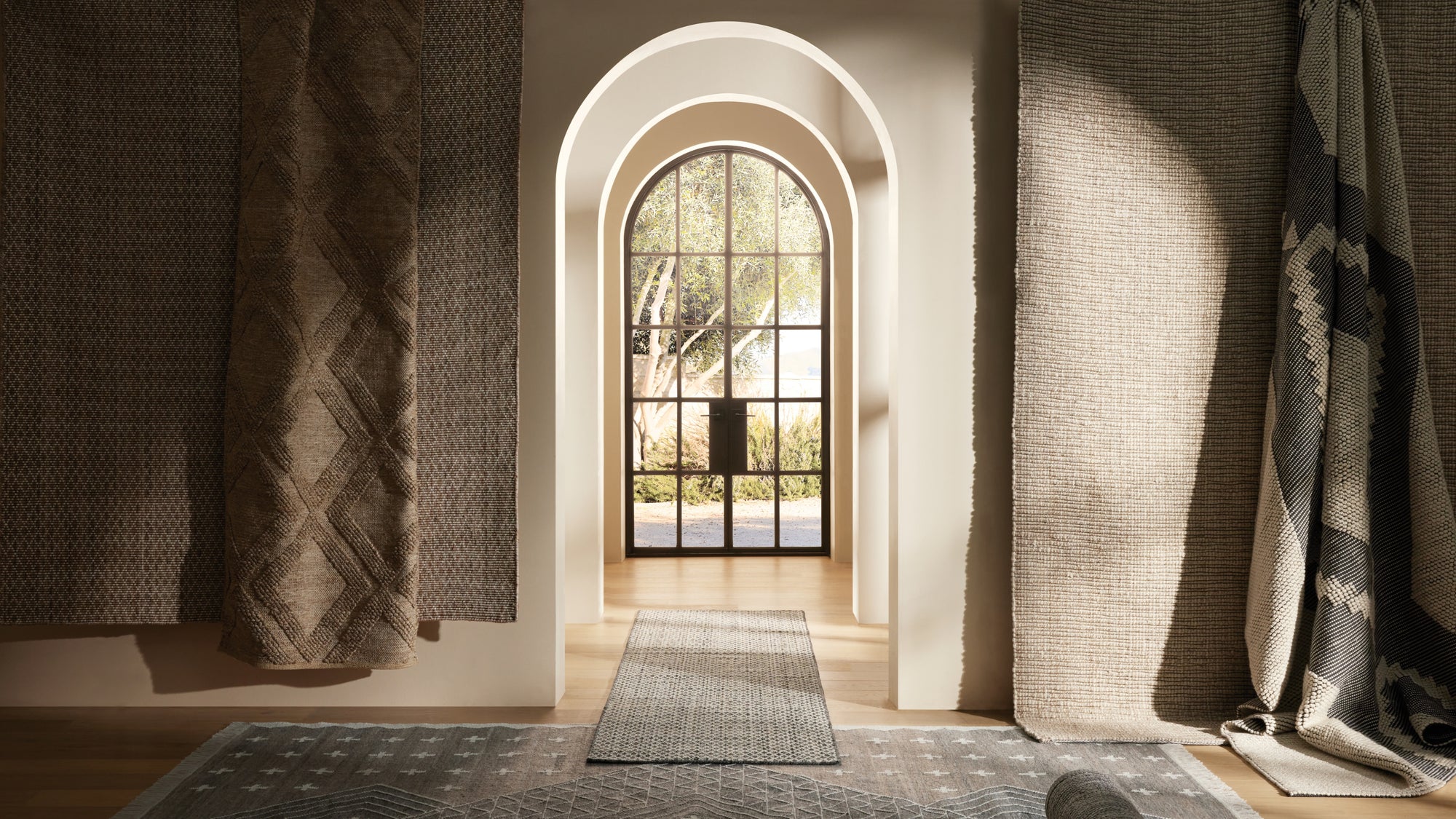
Entryways & Hallways
Rugs in these areas play a major role. While adding warmth, they can also radiate your personal style and prevent guests from tracking dirt or precipitation throughout your home.
Runners are perfect for long and narrow entryways, while large, square area rugs work in open spaces. Round rugs are ideal for entrances with curved elements like an archway or spiral staircase. Regardless of the entryway rug shape that you choose, make sure that from six to 24 inches of the floor show around all sides of your rug.
DINING ROOMS & KITCHENS
Rugs in these high-traffic areas can help protect your flooring from furniture scrapes and shoe scuffs. They also help absorb sound and make these spaces even more welcoming.

DINING SPACE RUGS
A dining room rug can offer protection from furniture scrapes and shoe scuffs if you don’t have carpet in the area. A rug will also help to absorb sound while bringing warmth and visual appeal to your gathering space. When buying a rug for this part of your home, opt for one that’s two feet longer and two feet wider than your dining table on all sides. This will make it easier for guests to pull out and push in their chairs.

KITCHEN RUG PLACEMENT
Here, the right rug option will vary on the size of your space. Larger kitchens (more than 200 square feet) allow for multiple rugs, while mid-size kitchens (100 to 200 square feet) have enough space for a 5' x 7', 3' x 5', and smaller rugs or runners. More intimate kitchens (70 square feet or less) look wonderful with smaller floor coverings, such as 2' x 3' or 3' x 5'.
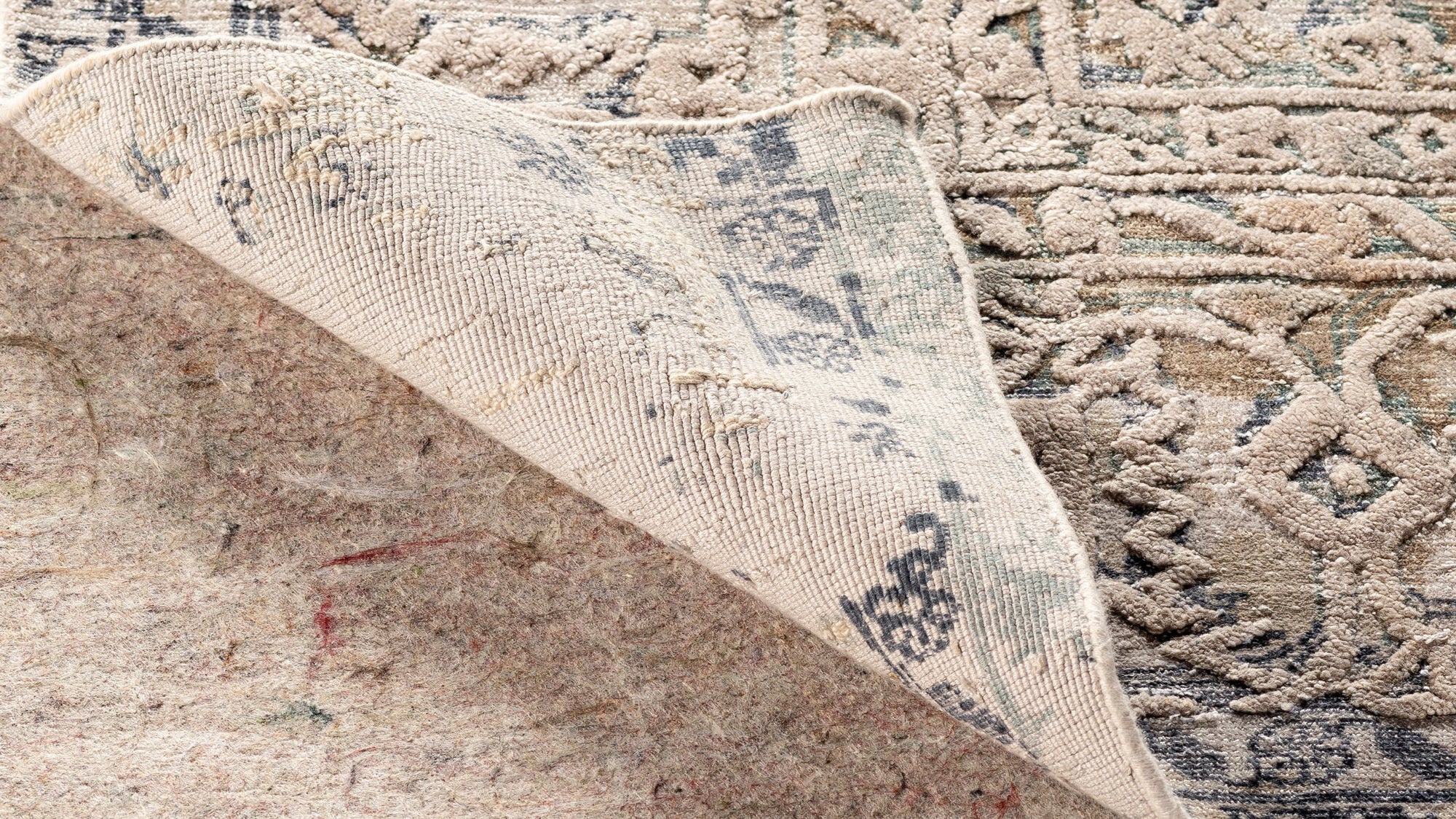
DO YOU NEED A RUG PAD?
The short answer—YES! A rug pad can help extend the life of your rug by absorbing the impact of constant foot traffic and taking the strain off rug fibers. Rug pads also can prevent scuffs, scratches, and other damage to your rug, should gravel or other sharp pieces of debris end up beneath it.
When buying a rug pad, choose one that isn’t too thick. A bulky rug pad will only make your rug sit up high and create a tripping hazard. If you need a rug pad for a wood or tile floor, make sure to select one that is made from a material that will keep your rug securely in place.
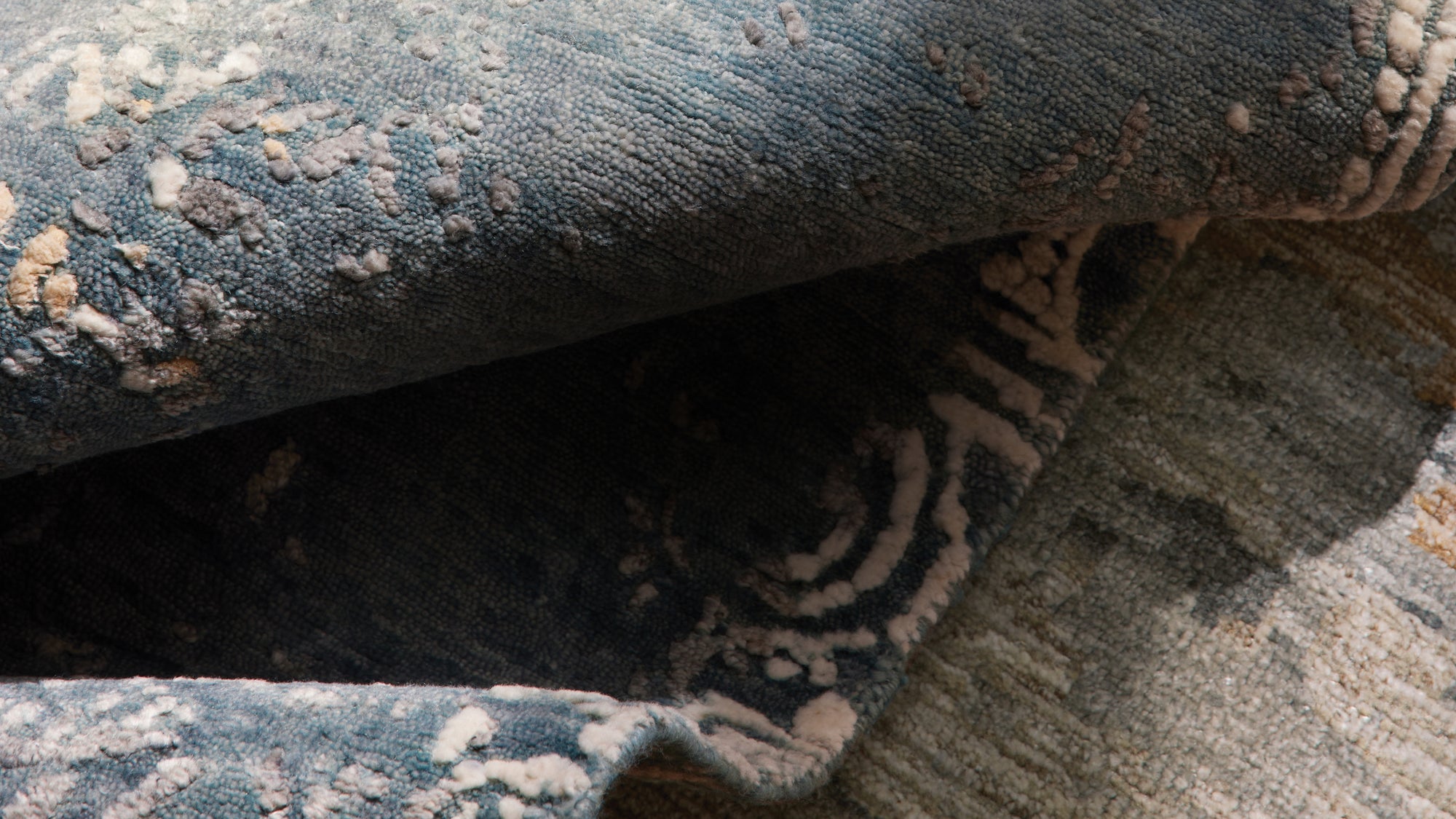
STILL HAVE QUESTIONS?
We're here to help! From selecting the right rug to styling it in your home, an Arhaus Designer would love to collaborate with you. Connect with a Designer now to bring your vision to life.